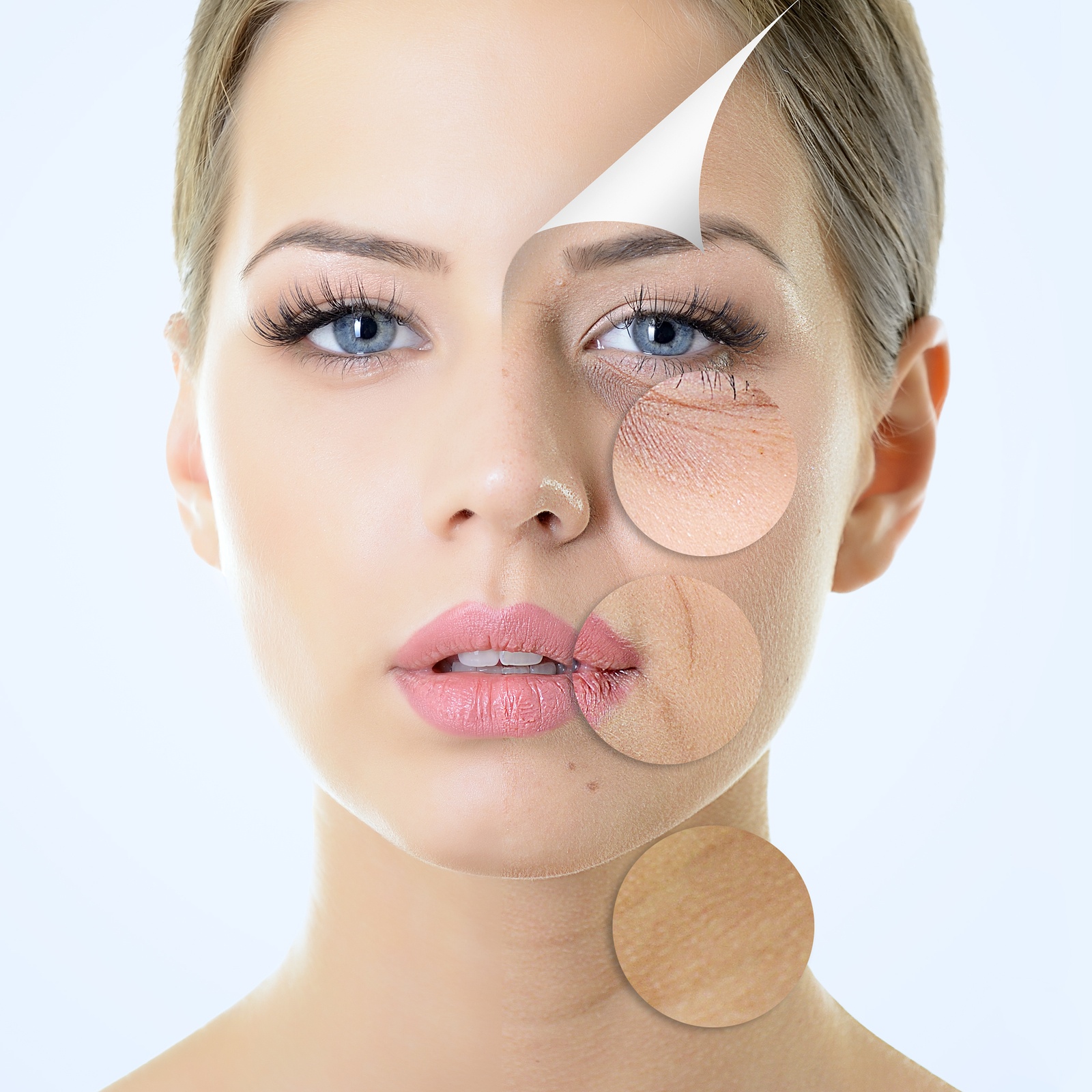In the blog – Can A Cream really turn back time? covered the two basic things that you can do to reduce the signs of aging, natural sunscreens and moisturizers. In this blog we explore the vitamins that you can apply to your skin to reduce signs of aging and repairs the skin. There are several important vitamins that you can apply to the skin to deliver maximum anti-aging benefits — everything from improving texture and tone to fading under-eye circles.
7 Vitamins that will help stop wrinkles
Vitamin A reduces wrinkles; fade brown spots, and smooth roughness. There are more than 700 published studies on retinoids. This is one vitamin that less is more. I have seen and treated the damage done when prescription based vitamin A (over 1%) is used for more than 3 months by many doctors that think that more is better. This is not so with vitamin A and in high dosages it can have serious side affects including topical dermatitis, thinning of the skin and loss of collagen and elastin. Look for a vitamin A that is encapsulated and no more than 1% in strength. Vitamin A creams should only at night as it will make you more light sensitive and increase the affects of the UV which will age you faster. Zinc Sunscreen is a must.
Vitamin B3 – (niacinamide) Increase production of ceramides and fatty acids, two key components of your skin’s outer protective barrier. This vitamin strengthened the skin to enable it to keep moisture in and irritants out. A very important ingredient if you have dry or sensitive skin. In one study, a moisturizer with niacinamide improved the flushing and blushing of rosacea. Also vitamin B3 inhibits the transfer of pigment to skin cells, minimizing dark spots thus great for prevention of pigmentation.
Vitamin C – Vitamin C also helps smooth and firm skin and fade brown spots but needs to be at least 5% or higher in concentration for the skin to benefit from this vitamin. Vitamin C is a major antioxidant that eliminates free radicals that causes wrinkling, sagging, and other aging changes. As you age, collagen breaks down and wrinkles begin to form. In studies where vitamin C is at concentration of 20% and pH below 4 it has shown to help in the production of collagen and counteract wrinkle formation.
Vitamin D – But the sun isn’t all bad. Just 10-15 minutes of daily exposure helps manufacture vitamin D throughout the skin. Vitamin D is one of the best vitamins for your skin. The most major benefit of Vitamin D to help treat psoriasis. The man-made version of vitamin D3 ( Calcitriol), which is the same vitamin D that we produce in a cream or lotion will reduced the amount of skin inflammation and irritation in patients with psoriasis without the adverse side effects of other treatment.
Vitamin E – is a good all rounder, it adds moisture; eases dryness and bolster’s the skin’s UV defense, reduces redness and fights the free radicals. Vitamin E needs to be at least at a level of 1% or more to have anti-aging effect. Vitamin E reduces dryness by helping skin retain its natural moisturizers and neutralize damaging free radicals. Vitamin E will also help with reducing your your risk of skin damage, including skin cancer.
Vitamin K – reduces dark circles around the eyes giving you the appearance of younger and brighter by reducing the blood leaks from fragile capillaries under-eye circles, Daily use of a vitamin K significantly lightened circles after 4 months in one study.
Coenzyme Q10 for Your Skin – is a natural antioxidant in the body that helps the cells grow and protects them from the ravages of cancer. It has been found that applying coenzyme Q10 to the skin helped minimize the appearance of wrinkles. Most studies conducted shows that it must be at a level of >0.3% in concentration.
As vitamins are essential to your health and your skin, vitamin deficiencies can cause adverse effects on the skin. Want clearer, brighter, more youthful-looking skin by applying them topically no matter what your age, your skin can benefit from this and can make a significant difference in preventing premature aging.









I just want to say honestly savored you’re blog site. You amazingly come with very good posts. Bless you for sharing.
My sister and mother suffer dark circles under the eyes, great to read that information on Vitamin K !!
Vitamin K is fat-soluble vitamins the human body needs for blood coagulation, and also certain proteins that the body uses to manipulate binding of calcium in bone and other tissues. Without vitamin K, blood coagulation is seriously impaired, and uncontrolled bleeding occurs. Low levels of vitamin K also weaken bones and promote calcification of arteries and other soft tissues including the skin.
Vitamin K1 is found chiefly in leafy green vegetables. Just two tablespoons of parsley contain 153% of the recommended daily amount of vitamin K. Vitamin K2 is found in fermented or aged cheeses, eggs, meats such as chicken and beef and their fat, livers, and organs, and in fermented vegetables, like sauerkraut and kefir.
Also your mum and sister can purchase a eye cream that contains Vitamin K. At the moment I do not have a recommendation but I like the look a this Refresh Me™ Dark Circle Cream with Vitamin K Also A Vitamin K cream is useful for spider veins too and for treating bruises.